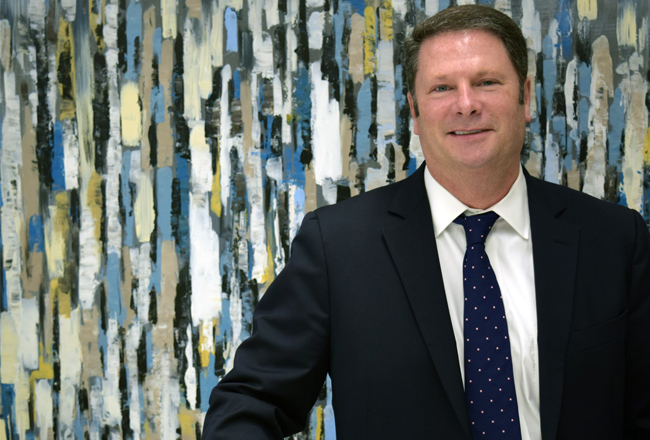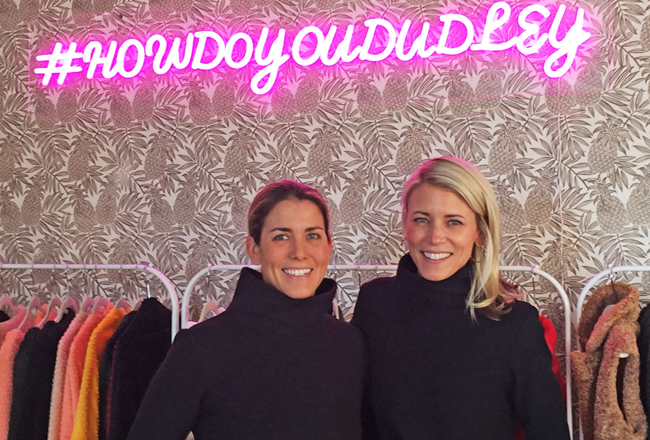In 2008, Frank V. Fiume II was into his fifth year running i9 Sports, a franchisor of youth leagues and camps, when he began to realize something was amiss in his professional life.
“We don”™t realize we experience burnout,” said Fiume.
Fiume, who recounted his experiences with professional burnout in his new memoir “Running with My Head Down: An Entrepreneur”™s Story of Passion, Perseverance and Purpose” (published by Greenleaf Book Group LLC), learned the hard way that his approach to work was creating more problems than solutions.
 “Business is not about you,” he warned. “If I love my business, I need to get out of my own way. Life is not just about business, but about fulfillment.”
“Business is not about you,” he warned. “If I love my business, I need to get out of my own way. Life is not just about business, but about fulfillment.”
Putting Fiume”™s observation into practice has become increasingly difficult ”” especially as digital tools blur the lines between professional and personal hours.
“Now, with our 24/7 technology, we are expected to pick up the phone on Saturday at a kids”™ soccer game and be tethered to the computer while on vacation,” lamented Lisa Mainiero, professor of management at Fairfield University.
Christopher Salem, a Danbury-based business and personal development consultant and host of the weekly “Sustainable Success” talk show on the VoiceAmerica online radio network, observed that everything cannot be treated as a priority with goals and projects ranked appropriately.
“In order to have sustainability, you have to be striving for harmony,” he explained. “Not balance ”” there is no such thing as perfect balance. A seesaw is a perfect example of that. And you need to be more specific with goal setting. You need to be doing one task at a time, not multitasking. Trying to do too many things leads to burnout.”
Then, there is addressing the fear of what could occur if the job or business would abruptly disappear.
William Grodman, a psychology professor at Norwalk Community College and a clinical psychologist with a Greenwich private practice, is familiar with patients facing this level of burnout.
“In my practice, I have spoken with people who are stressed about the job security of what they do,” he stated. “It is hard enough to do what you do without having an overwhelming concern of whether you will have a job tomorrow.”
Nicholas Coriano, partner at Bridgeport-based Cervitude Inc., urged those facing fear-of-the-unknown burnout to prioritize their fatalistic worries.
“For me, steps to prevent a total burnout include remembering that almost none of what you are doing is really important,” he observed. “You will die one day and life will go on without you. Minimizing my problems allows me to go on with less stress.”
While many in the process of experiencing burnout are the last to realize what is happening to them, warning signs can often be spotted. Jay Amenda, who runs Barnum Tax LLC in Stratford, observed his problems begin to percolate when April 15 looms on his calendar”™s horizon.
“During income tax season, I often experience work fatigue while working long hours to prepare returns for clients,” he admitted. “Although each income tax return is unique, looking at tax forms and numbers all day really takes a toll on my brain. I usually notice early signs of burnout when all of the numbers begin to look the same, or I feel like I may not be as sharp as I usually am. When preparing income tax returns for clients, I must be 100% accurate, avoiding burnout at all costs.”
So, how does Amenda get around this dilemma?
“I plan my day out and try my best to stick to that schedule,” he continued. “Planning means to not only schedule clients, but also make time for preparing for client meetings, making time for follow-ups and also scheduling breaks and time to take care of personal matters if needed throughout the day. Sometimes the mixture of personal and business matters can be the cause of burnout, so scheduling time to tackle both is extremely important.”
Coriano addresses the possibility of burnout by closing his eyes to the matter ”” literally.
“I take naps,” he said. “Almost daily, sometimes twice a day if I have a jam-packed agenda. And if I remember, I eat healthy. That for sure helps, although I”™m guilty of loving pizza.”
Fiume recommended reaching out to like-minded business professionals who might be going through the same problems.
“When you are at a point where you start to burn out, you”™re breathing your own fumes,” he said. “Seek insight from peer groups or even Facebook groups and attend business seminars such as Tony Robbins”™ to get insight on how others are handling this.”
But this leads to another issue: is the burnout an individual”™s dilemma or is it systemic of a toxic business culture?
Shane Murphy, a psychology professor at Western Connecticut State University, warned that companies could be encouraging burnout without realizing it.
“Organizational burnout is a big issue and organizations need to take some responsibility for that,” he said. “Managers need to address structural change that can alleviate or prevent burnout. This could involve making sure hours are reasonable. Doing overtime for too long leads to burnout.”
Michael Carriger, an assistant professor of management at Sacred Heart University, recommended that companies use assessment tools that measure employee engagement and detect the potential for burnout.
“You may not see it in your employees by looking at them,” he said. “Typically, you see a decrease in productivity (and an) increase in absences. If we can develop initiatives within a company to improve engagement, it would take away a sense of burnout.”
Carriger is uncertain if directly approaching an employee or colleague on the subject is the best approach.
“It is a little bit dicey to come and say, ”˜Hey, you look burned out.”™ ”
But Eddie Martinez, an inspirational speaker and owner of the TOP Station podcasting outfit in Bridgeport, believed broaching the subject was important.
“Too often, we see things happening and we just ignore it,” he said. “We think it is not our problem. But it is our problem and it will affect the workplace. Either you talk to the person or speak to management. I realize that it is tough because everyone is different. What we might think is burnout could be how they behave on a day-by-day basis.”






















